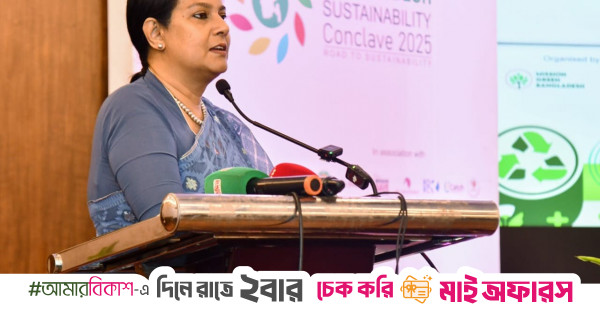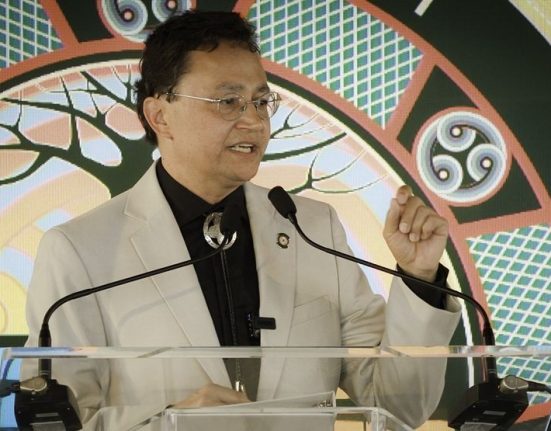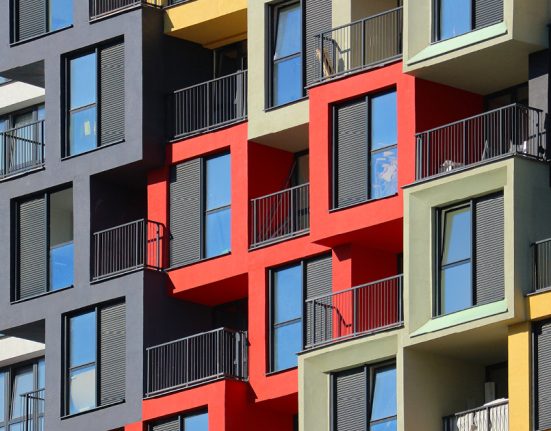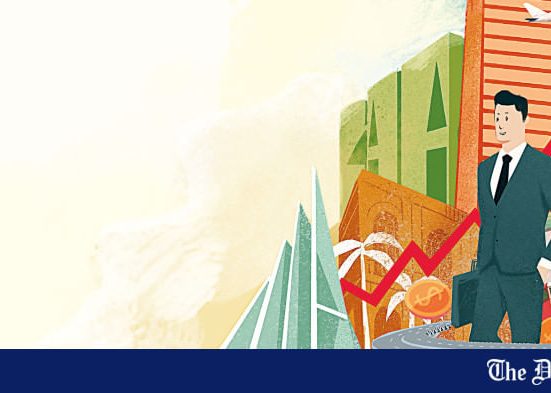Public awareness is the key to sustainable development, says Environment Adviser Syeda Rizwana Hasan
Environment Adviser Syeda Rizwana Hasan speaks at the Bangladesh Sustainability Conclave 2025 held at the Dhaka North City Corporation auditorium today, 30 August 2025. Photo: TBS
“>
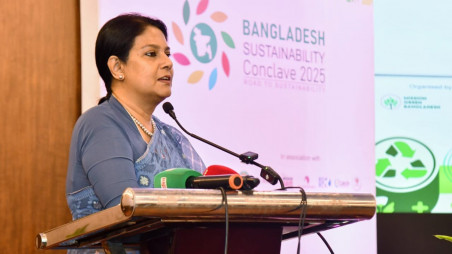
Environment Adviser Syeda Rizwana Hasan speaks at the Bangladesh Sustainability Conclave 2025 held at the Dhaka North City Corporation auditorium today, 30 August 2025. Photo: TBS
Syeda Rizwana Hasan, adviser for the Ministry of Environment, Forest and Climate Change, has called for increased investment in food security, safe food, clean air and safe water.
Speaking as the chief guest at the “Bangladesh Sustainability Conclave 2025” held at the Dhaka North City Corporation auditorium today (30 August), the adviser said it is urgent to formulate and implement time-befitting policies in these areas.
“Bangladesh must transform into a beautiful, fertile, safe and green country. For that, we must move towards sustainability,” said Rizwana, also the adviser to the Ministry of Water Resources.
She said public awareness is the key to sustainable development, adding that citizens must adopt lifestyle changes and reduce overconsumption.
“We must learn from our past mistakes and chart the course for our future.”
Highlighting the importance of people’s voices in environmental protection, Rizwana said the recent illegal white stone extraction in Bholaganj, Sylhet, is a stark reminder of the urgency of the issue.
She noted that the use of pesticides and chemical fertilisers must be reduced, polythene shopping bags phased out, and the reckless use of hills and forests in the name of development stopped.
The advisor said proposals for tax incentives will be placed before the government to encourage eco-friendly initiatives. “We have many policies, but the most important task now is their effective implementation,” she added.
Meanwhile, Dhaka North City Corporation Administrator Mohammad Azaz said, “Dhaka must lead by example. From green infrastructure to climate-smart waste management, Dhaka north is committed to building a city that supports both people and the planet.”
He continued, “Dhaka’s main crisis is the environmental crisis. The main culprit for this is the housing companies, who have developed housing in Dhaka in an unplanned manner.”
Nayoka Martinez-Bäckström, first secretary and deputy head of cooperation at the Embassy of Sweden in Bangladesh, highlighted Sweden’s commitment to fostering green innovation and partnerships in Bangladesh.
“Sustainability is not a choice: it is a necessity. Sweden is proud to support platforms like this that unite policymakers, youth and private sector leaders to create innovative, inclusive and actionable solutions for a greener future,” said Martinez-Bäckström.

